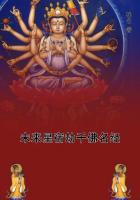Bawling these requests to Newman Noggs, Mr Squeers betook himself to the little back-office, and fitted on his child's hat with parental anxiety, while Newman, with his pen behind his ear, sat, stiff and immovable, on his stool, regarding the father and son by turns with a broad stare.
`He's a fine boy, an't he?' said Squeers, throwing his head a little on one side, and falling back to the desk, the better to estimate the proportions of little Wackford.
`Very,' said Newman.
`Pretty well swelled out, an't he?' pursued Squeers. `He has the fatness of twenty boys, he has.'
`Ah!' replied Newman, suddenly thrusting his face into that of Squeers, `he has;--the fatness of twenty!--more! He's got it all. God help that others. Ha! ha! Oh Lord!'
Having uttered these fragmentary observations, Newman dropped upon his desk and began to write with most marvellous rapidity.
`Why, what does the man mean?' cried Squeers, colouring. `Is he drunk?'
Newman made no reply.
`Is he mad?' said Squeers.
But, still Newman betrayed no consciousness of any presence save his own; so, Mr Squeers comforted himself by saying that he was both drunk and mad; and, with this parting observation, he led his hopeful son away.
In exact proportion as Ralph Nickleby became conscious of a struggling and lingering regard for Kate, had his detestation of Nicholas augmented.
It might be, that to atone for the weakness of inclining to any one person, he held it necessary to hate some other more intensely than before; but such had been the course of his feelings. And now, to be defied and spurned, to be held up to her in the worst and most repulsive colours, to know that she was taught to hate and despise him: to feel that there was infection in his touch, and taint in his companionship--to know all this, and to know that the mover of it all was that same boyish poor relation who had twitted him in their very first interview, and openly bearded and braved him since, wrought his quiet and stealthy malignity to such a pitch, that there was scarcely anything he would not have hazarded to gratify it, if he could have seen his way to some immediate retaliation.
But, fortunately for Nicholas, Ralph Nickleby did not; and although he cast about all that day, and kept a corner of his brain working on the one anxious subject through all the round of schemes and business that came with it, night found him at last, still harping on the same theme, and still pursuing the same unprofitable reflections.
`When my brother was such as he,' said Ralph, `the first comparisons were drawn between us--always in my disfavour. He was open, liberal, gallant, gay; I a crafty hunks of cold and stagnant blood, with no passion but love of saving, and no spirit beyond a thirst for gain.
I recollected it well when I first saw this whipster; but I remember it better now.'
He had been occupied in tearing Nicholas's letter into atoms; and as he spoke, he scattered it in a tiny shower about him.
`Recollections like these,' pursued Ralph, with a bitter smile, `flock upon me--when I resign myself to them--in crowds, and from countless quarters.
As a portion of the world affect to despise the power of money, I must try and show them what it is.'
And being, by this time, in a pleasant frame of mind for slumber, Ralph Nickleby went to bed.













